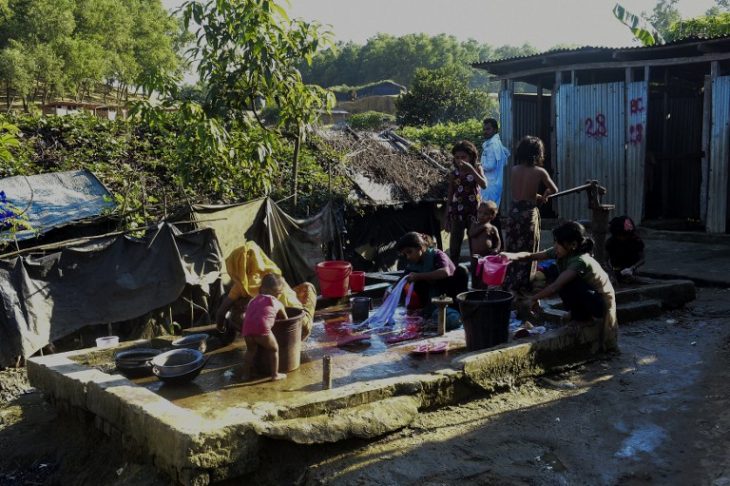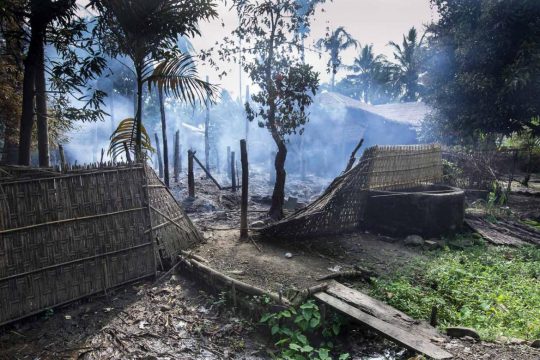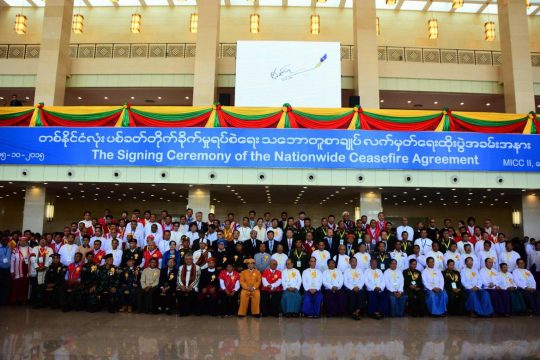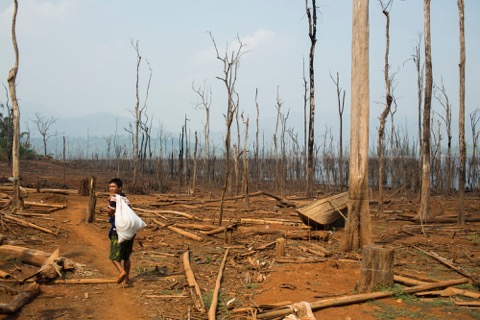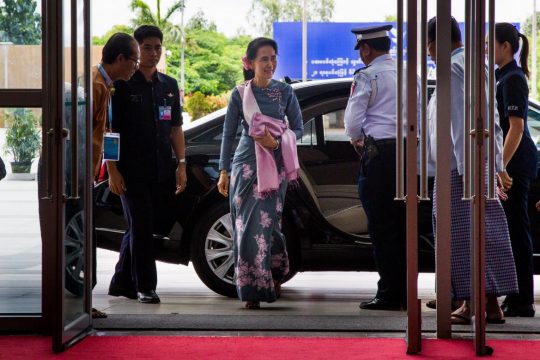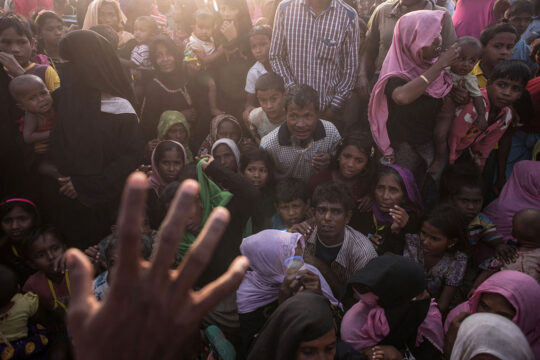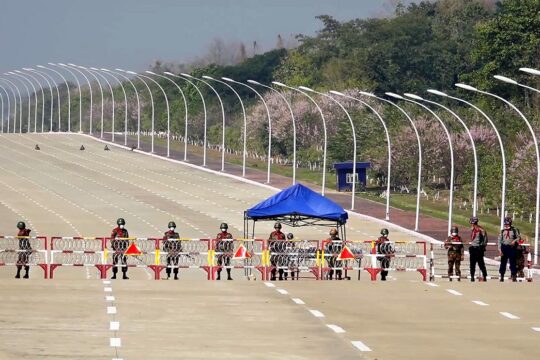Myanmar is engaged in "ethnic cleansing" of Rohingya Muslims, a UN official has said, as reports emerged Friday of troops shooting at villagers as they tried to flee.
Thousands of desperate Rohingya have flooded over the border into Bangladesh in the last few days, bringing with them horrifying stories of gang rape, torture and the systematic killing of their stateless ethnic group.
The violence has forced up to 30,000 Rohingya to abandon their homes in Myanmar, desperate to leave after soldiers poured into the strip of land in western Rakhine state where they live.
Dhaka says thousands more are massed on the border, but has refused urgent international appeals to let them in, instead calling on Myanmar to do more to stop people fleeing.
"It's very difficult for the Bangladeshi government to say the border is open because this would further encourage the government of Myanmar to continue the atrocities and push them out until they have achieved their ultimate goal of ethnic cleansing of the Muslim minority in Myanmar," John McKissick, head of the United Nations refugee agency in the Bangladeshi border town of Cox's Bazar, said.
Farmer Din Mohammad, 50, was among the thousands who evaded the border patrols, arriving in Bangladesh after he said the army attacked his village last week.
"The soldiers grabbed my long beard and torched it with a cigarette lighter. They said I sported the beard to flaunt my religiosity," the father of seven said.
Mohammad had injuries all over his body where he said soldiers had beaten him with a steel rod. His beard also looked burned, an AFP reporter said.
The troops had set fire to his home and thrown two of his brothers-in-law into the burning building, accusing them of being members of a rebel group, Mohammad said.
He said he didn't know did if they survived.
Indiscriminate firing
A Rohingya man, who asked not to be named, told AFP in Myanmar's Rakhine state that troops had stormed a neighbouring village early Friday morning and fired indiscriminately on residents as they tried to escape.
At least three men died and four were injured, including an eight-year-old girl who was hit in the leg by a bullet, he said.
The government denied that the village had been attacked. "There was no attack or fighting while they were investigating," it said in a statement.
Bangladeshi border guards said they have pushed back over 1,000 Rohingya this week, including 100 on Thursday night, as they attempted to cross the Naf river that forms the border between Rakhine State and southern Bangladesh.
As the allegations of indiscriminate killing and rape by Myanmar's military have continued to mount, thousands of Muslims across Asia took to the streets Friday.
More than 5,000 Bangladeshi Muslims demonstrated in the capital Dhaka, despite an earlier pledge by Home Minister Asaduzzaman Khan that any Rohingya entering the country would be treated humanely.
Genocide
Amnesty International has described the actions of the Myanmar army as "collective punishment" against the Rohingya population for attacks on police posts last month.
"Instead of investigating and arresting specific suspects, the army carried out operations amounting to collective punishment," said the group's South Asia director Champa Patel.
Myanmar's new civilian government, led by Nobel Peace Prize winner Aung San Suu Kyi, has rejected the allegations.
It has also severely restricted entry to Rakhine state making it independent verification difficult.
Rights workers say hundreds of fleeing families have set up makeshift camps on the Myanmar side of the border as they wait for the chance to cross, with little access to food.
Meanwhile, border guards on the Bangladesh side say that the flow of people attempting to cross had dropped since the beginning of the week, though it was not clear what had caused the decline.
The London-based International State Crime Initiative (ISCI) has described the situation in Rakhine state as the early stages of genocide.
"These events mark a disturbing but entirely predictable pattern in the genocidal process," Alicia de la Cour Venning, a lawyer and researcher with the group said.
Another ISCI researcher, lawyer Thomas MacManus, likened the behaviour of the Suu Kyi government to "the military dictatorship-era tactics of blanket denial".
"Only enormous pressure on the Myanmar government will succeed in halting the devastation. The Rohingya are staring death in the face," he said.



